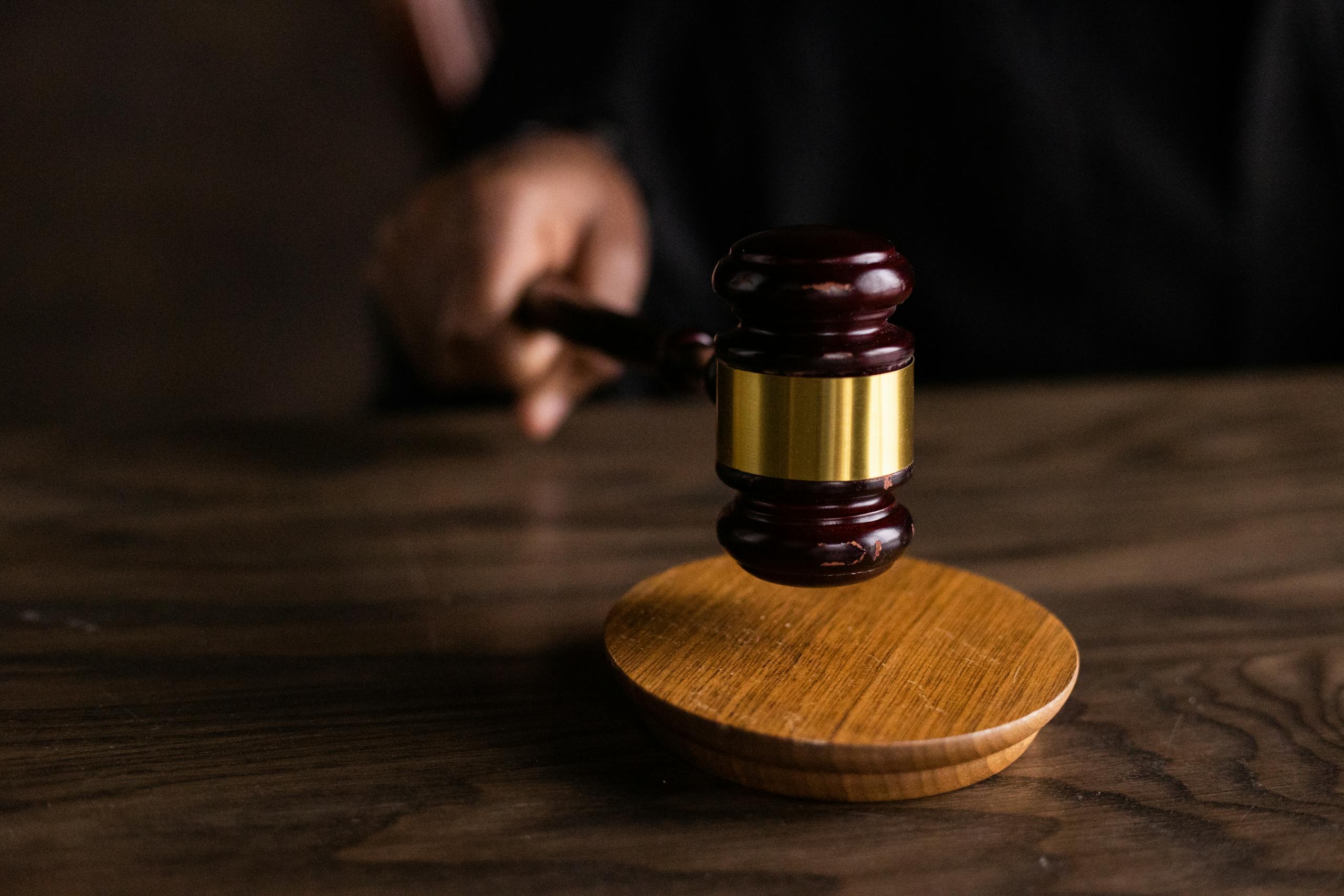Convicted vs. Charged: Key Differences Explained (What You NEED to Know)
Introduction
Ever felt like you need a law degree just to understand the news? Well, you’re not alone! When it comes to criminal justice, the terms “convicted” and “charged” get tossed around like confetti at a legal parade. But what’s the real deal? Get ready, because we’re about to decode this justice jargon and set the record straight!
Charged vs. Convicted: The Legal Showdown
Understanding the distinction between being charged and convicted is crucial for navigating the criminal justice system. Let’s delve deeper into each stage:
Being Charged: The Initiation of Legal Proceedings
When an individual is charged with a crime, it marks the beginning of formal legal proceedings. Here’s what you need to know:
- Definition: A criminal charge is a formal accusation made by a governmental authority (usually a prosecutor) asserting that somebody has committed a crime.
- Legal Standard: Charges are typically filed when there is probable cause to believe a crime has been committed. This is a lower standard than what’s required for a conviction.
- Process:
- Investigation by law enforcement
- Prosecutor reviews evidence
- Formal charges filed with the court
- Arraignment, where charges are formally presented
- Rights of the Accused:
- Presumption of innocence
- Right to legal counsel
- Right to a speedy trial
- Protection against self-incrimination
- Potential Outcomes:
- Charges may be dropped or dismissed
- The case might proceed to trial
- Plea bargaining may occur
- Impact: While charges alone don’t constitute guilt, they can have significant personal and professional consequences, including reputational damage and potential employment issues.
Being Convicted: The Determination of Guilt
A conviction represents a definitive legal judgment that the accused is guilty of the crime charged. Here are the key aspects:
- Definition: A conviction occurs when a defendant is formally declared guilty of a criminal offense by a court of law.
- Legal Standard: For a conviction, guilt must be proven “beyond a reasonable doubt,” a much higher standard than for charging.
- Pathways to Conviction:
- Guilty verdict following a trial (by judge or jury)
- Guilty plea entered by the defendant
- No contest plea (in some jurisdictions)
- Consequences:
- Criminal record
- Potential incarceration
- Fines and restitution
- Loss of certain rights (e.g., voting, firearm ownership)
- Long-term impacts on employment, housing, and education opportunities
- Post-Conviction Rights:
- Right to appeal
- Possibility of expungement or sealing of records (varies by jurisdiction and offense)
- Societal Impact: Convictions serve as the basis for criminal statistics and inform policy decisions in the criminal justice system.
Key Differences at a Glance
| Aspect | Charged | Convicted |
| Legal Status | Accused of a crime | Found guilty of a crime |
| Burden of Proof | Probable cause | Beyond a reasonable doubt |
| Presumption of Innocence | Maintained | Overcome |
| Impact on Record | May appear in background checks | Permanent criminal record (unless expunged) |
| Legal Consequences | Potential pre-trial restrictions | Sentencing and long-term consequences |
The Importance of Legal Representation
Given the significant differences between being charged and convicted, and the potential life-altering consequences of each, obtaining competent legal representation is crucial. An experienced criminal defense attorney can:
- Evaluate the strength of the charges
- Protect the rights of the accused throughout the legal process
- Negotiate with prosecutors for reduced charges or dismissal
- Prepare and present a robust defense if the case goes to trial
- Advise on the potential consequences of plea bargains versus going to trial
Understanding these distinctions is not just academic; it’s essential for anyone involved in or observing the criminal justice system. The progression from charge to potential conviction is a complex journey through the legal system, with significant implications at every stage.
By the Numbers: The Statistical Smackdown
Let’s dive deeper into the data to get a clearer picture of charges and convictions in the U.S. criminal justice system. These statistics offer valuable insights into the realities of criminal proceedings:
Federal Criminal Cases:
- Only about 2% of federal criminal cases go to trial
- Of those that do go to trial, approximately 83% result in a guilty verdict
- Roughly 90% of federal criminal cases end in a plea bargain
- The overall conviction rate for federal prosecutions is about 99.6%
State-Level Criminal Cases:
- State conviction rates vary but average around 70% for felony charges
- Approximately 94% of state-level felony convictions result from plea bargains
- The median time from arrest to adjudication for felony cases is about 110 days
Arrests and Charges:
- The FBI reports that about 45% of violent crimes and 17% of property crimes result in arrest or charges
- Of those arrested for felonies, about 68% are eventually convicted
- Misdemeanor arrests result in charges about 80% of the time
Specific Crime Categories:
- Drug possession charges result in conviction about 72% of the time
- Domestic violence charges lead to conviction in approximately 60% of cases
- White-collar crime charges have a conviction rate of about 53%
Demographics and Disparities:
- Black defendants are 19% more likely to be offered plea deals that include prison time compared to white defendants
- Hispanic defendants are 30% more likely to be incarcerated than non-Hispanic white defendants for the same crimes
Post-Conviction:
- About 68% of released state prisoners are rearrested within 3 years
- Approximately 11% of federal criminal convictions are appealed
- Of appealed federal convictions, only about 7% result in a reversal or remand
These statistics highlight several key points:
- The vast majority of criminal cases, both at the federal and state level, are resolved through plea bargains rather than trials.
- Conviction rates are generally high, especially in the federal system.
- There are significant disparities in how different demographic groups experience the criminal justice system.
- The time from arrest to adjudication can be substantial, affecting the lives of the accused even before a conviction.
- Post-conviction, recidivism rates remain high, indicating challenges in rehabilitation and reintegration.
Understanding these numbers is crucial for comprehending the real-world implications of being charged versus being convicted. They underscore the importance of legal representation and the potential consequences of criminal charges, even if they don’t always lead to convictions.
It’s important to note that while these statistics provide a broad overview, individual cases can vary significantly based on specific circumstances, local jurisdictions, and the nature of the charges.
Real-Life Examples: When Legal Drama Isn’t Just on TV
- The “Oops, My Bad” Case: In 2019, John Doe was charged with bank robbery after a case of mistaken identity. Charges were dropped faster than you can say “alibi” when security footage showed him at a hot dog eating contest at the time of the crime.
- The “Not So Fast” Conviction: Jane Smith was convicted of fraud in 2020, only to have the conviction overturned a year later when new evidence came to light. Talk about a legal rollercoaster!
- The “Plea Bargain Paradise” Scenario: Tom Johnson was charged with three felonies but pled guilty to a lesser charge, avoiding trial and a potential harsh sentence. Sometimes, you gotta know when to fold ’em!
The Plot Twist: When You Need a Legal Superhero
Finding yourself tangled in the legal web? Don’t try to be your own Perry Mason!
A good criminal defense attorney can be the difference between “charged” and “convicted.” They’re like a GPS for the legal maze, helping you navigate the twists and turns. Check out LegalEagle Defenders for top-notch legal representation that won’t leave you singing the jailhouse blues!
Conclusion: The Verdict Is In
So, there you have it, folks! Being charged is like being on the suspect list while being convicted is like having your name etched in the “Oops, I Did It” Hall of Fame. Remember, in the eyes of the law, you’re innocent until proven guilty (or until you binge-watch enough true crime shows to incriminate yourself).
Whether you’re trying to understand the latest celebrity scandal or navigate your legal pickle, knowing the difference between “charged” and “convicted” is crucial. It’s the difference between “maybe they did it” and “yep, they did it.”
Stay informed, stay legal, and if all else fails, remember that orange is nobody’s color. Here’s to hoping your only conviction is a conviction to understand the law better!







